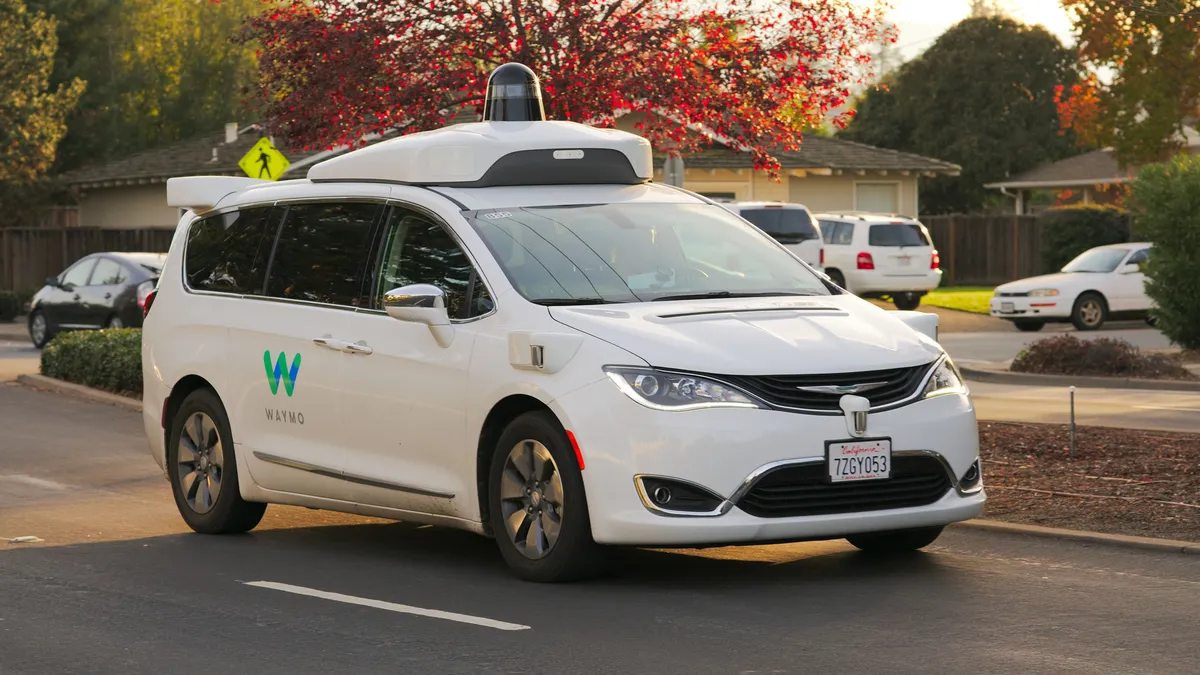Dive Brief:
- Florida will allow autonomous vehicles (AVs) to operate on public roads without a human driver starting next month, under a new law signed by Gov. Ron DeSantis, R.
- The bill, designed to facilitate more AV testing in the state, sets out a statutory framework for insurance and safety rules for the vehicles. It also exempts AV passengers from distracted driving rules that bar texting and phone use.
- The bill was signed at the SunTrax facility, the southeast’s only high-speed AV testing facility, marking the completion of the center's newest AV test track.
Dive Insight:
Florida has positioned itself as a leader for AV testing. The state has been allowing companies to test on some public roads and has authorized autonomous shuttles for use in Orlando.
The new law will put Florida on par with other states that have passed progressive laws to encourage automakers and tech startups to bring AV testing. Arizona, California, Utah and Pennsylvania have all pushed policy to make it easier for AVs to operate on public roads. Given the immense interest in AV technology, and the potential for driverless cars to remake mobility, it makes sense for states to try to put themselves on the front line.
Florida’s law also comes as the federal government has taken a hands-off approach to setting AV rules, leaving most decisions up to state and local governments. The Department of Transportation (DOT) passed rules in October that lift the assumption of a human driver, but did not move prescriptive policy for several safety issues.
Congress has so far failed to move a comprehensive AV bill, which has left states and cities in charge of policy. There’s concern that could create a patchwork of rules, but also opens the door for certain areas, like Florida, to become test sites to ensure that the vehicles are safe enough to operate more broadly.











